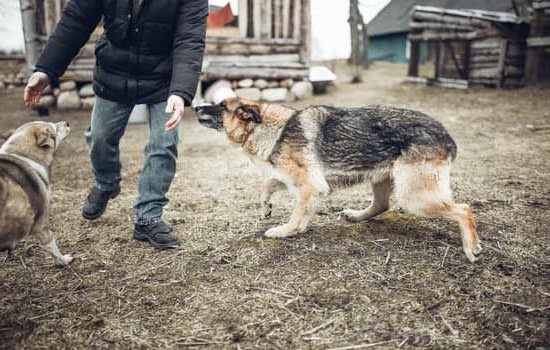Are Shih Tzu dogs easy to train? The answer to this question may vary depending on who you ask. In this article, we will explore the trainability of the Shih Tzu breed and provide valuable insight into their characteristics, temperament, and the importance of training. Understanding these aspects is crucial in determining whether Shih Tzu dogs are indeed easy to train or not.
The Shih Tzu breed is known for its charming personality, affectionate nature, and beautiful appearance. Originating from Tibet, these dogs were bred to be companion animals for royalty, and their regal demeanor is still evident today. However, despite their endearing qualities, the trainability of Shih Tzus has been a topic of debate among dog owners and trainers.
Training plays a vital role in shaping the behavior and obedience of any dog, including the Shih Tzu breed. It not only establishes boundaries and instills good manners but also strengthens the bond between a pet and its owner.
Throughout this article, we will delve into various aspects of training methods, common challenges faced in training Shih Tzus, as well as tips and success stories shared by experienced dog owners. Whether you are a current or prospective owner of a Shih Tzu dog, understanding their trainability is essential for cultivating a happy and well-behaved pet.
Shih Tzu Breed Characteristics and Temperament
Shih Tzu dogs are known for their affectionate and friendly nature. They have a lively and outgoing personality, making them great companions for individuals and families alike. One of the most notable characteristics of Shih Tzus is their beautiful long, flowing coat, which requires regular grooming to keep it in good condition. Despite their small size, they are robust and make excellent indoor pets.
In terms of temperament, Shih Tzus are known to be very loyal to their owners and thrive on human companionship. They often form strong bonds with their families and can be quite protective of them. However, they can also be independent at times, making training essential for ensuring that they exhibit good behavior.
The breed is generally friendly towards other animals and children, although proper socialization from an early age is crucial in shaping their behavior. Without adequate training and socialization, Shih Tzus can develop negative behaviors such as excessive barking or possessiveness. Understanding the breed’s unique characteristics and temperament is essential in training Shih Tzu dogs effectively.
| Shih Tzu Breed Characteristics | Temperament |
|---|---|
| Lively and outgoing | Loyal to owners |
| Require regular grooming | Friendly towards other animals |
| Robsut despite small size | Thrive on human companionship |
The Importance of Training for Shih Tzu Dogs
The Shih Tzu is a delightful and affectionate breed known for their friendly and outgoing nature. However, despite their charming personality, it is important to understand that training is crucial for Shih Tzu dogs. Training not only provides mental stimulation for these intelligent canines but also ensures that they become well-behaved and obedient companions.
Training a Shih Tzu dog helps in establishing boundaries and rules within the household. This breed has a tendency to be stubborn at times, so it is essential to start training early on to prevent any behavioral issues from forming. Additionally, proper training can help in addressing any potential aggressiveness or excessive barking, which are common problems observed in untrained Shih Tzus.
When it comes to the importance of training for Shih Tzus, consistency is key. Teaching them basic commands such as “sit,” “stay,” “come,” and “down” will help in maintaining control over their behavior. In addition, housebreaking and leash training are essential components of their overall training regimen. By investing time in their training, you are not only setting your Shih Tzu up for success but also ensuring a harmonious relationship between you and your furry companion.
- Training sets boundaries and establishes rules
- Prevents behavioral issues like aggressiveness and excessive barking
- Teaches basic commands for obedience
- Housebreaking and leash training are crucial components
Training Methods for Shih Tzu Dogs
When it comes to training Shih Tzu dogs, it is important to keep in mind their unique characteristics and temperament. These dogs are known for their independent nature, which can make training a bit challenging at times. However, with the right approach and consistency, Shih Tzu dogs can be effectively trained to obey commands and exhibit good behavior.
There are several training methods that can be effective for Shih Tzu dogs, including:
- Positive reinforcement: This method involves rewarding your Shih Tzu with treats, praise, or toys when they exhibit desired behaviors. Positive reinforcement helps to motivate and encourage your dog to repeat those behaviors in the future.
- Clicker training: Using a clicker as a marker for desired behaviors can be an effective way to communicate with your Shih Tzu during training. The sound of the clicker serves as a signal that a reward is coming, helping to reinforce positive behaviors.
- Consistency and patience: Consistency is key when it comes to training Shih Tzu dogs. Setting clear rules and boundaries, and being patient with your dog as they learn new behaviors, will contribute to successful training outcomes.
It’s important to note that every dog is unique, so it may take some trial and error to find the most effective training method for your Shih Tzu. Additionally, seeking professional help from a certified dog trainer or behaviorist can provide valuable guidance in developing a customized training plan for your furry companion. With dedication and the right approach, Shih Tzu dogs can indeed be successfully trained to be well-behaved pets.
Common Challenges in Training Shih Tzu Dogs
Training a Shih Tzu dog can be a rewarding experience, but it also comes with its own set of challenges. One common challenge in training Shih Tzu dogs is their stubborn nature. Shih Tzus are known for being independent and can sometimes be resistant to following commands. This can make the training process more time-consuming and requires a lot of patience from the owner.
Another challenge in training Shih Tzu dogs is their small size. Due to their petite stature, some owners may struggle with potty training their Shih Tzus. It can take longer for them to grasp the concept of where they should go to relieve themselves, so consistent and positive reinforcement is crucial in this aspect of training.
Lastly, Shih Tzus are also known for their sensitive nature, which can pose a challenge during the training process. They tend to respond better to positive reinforcement techniques rather than harsh discipline. This means that owners need to be mindful of their tone and approach when training their Shih Tzus, as they may become easily discouraged or anxious if scolded too harshly.
| Common Challenges | Training Tips |
|---|---|
| Stubborn nature | Patience and consistency required |
| Small size | Positive reinforcement and consistency in potty training |
| Sensitive nature | Use gentle and positive reinforcement techniques |
Tips for Training a Shih Tzu Dog
Consistency Is Key
When it comes to training a Shih Tzu dog, consistency is key. These dogs respond well to routine and predictability, so it’s important to establish a consistent training schedule. This means conducting training sessions at the same time each day and using the same commands and methods consistently. By doing so, your Shih Tzu will learn what is expected of them and be more likely to comply with your commands.
Positive Reinforcement
Like many small dog breeds, Shih Tzus respond best to positive reinforcement during training. This means rewarding good behavior with treats, praise, or affection. When your Shih Tzu follows a command or displays the desired behavior, be sure to immediately reward them to reinforce the behavior. This will encourage them to continue exhibiting that behavior in the future.
Patient Training Approach
Training a Shih Tzu dog requires patience and understanding. These dogs can be sensitive and may become discouraged by harsh verbal or physical correction. Instead, take a patient and gentle approach to training, offering plenty of encouragement and support. Keep in mind that some Shih Tzus may take longer to grasp certain commands or behaviors, so patience is crucial for successful training outcomes.
Personal Experiences
Positive Reinforcement
One common success story in training Shih Tzu dogs involves the use of positive reinforcement. Many owners have found that rewarding their Shih Tzu with treats, praise, and affection during training sessions has resulted in quicker and more effective learning. By using a rewards-based approach, Shih Tzu dogs can be effectively motivated to learn new commands and behaviors.
Consistency and Patience
Another key factor in successfully training Shih Tzu dogs is consistency and patience. Owners who have seen positive results in training their Shih Tzu often emphasize the importance of sticking to a regular training schedule and being patient with their dog’s progress. Consistently practicing commands and behaviors, along with remaining patient through any challenges or setbacks, can lead to successful training outcomes.
Bonding Through Training
Many owners have also reported that the training process has strengthened the bond between them and their Shih Tzu. Training sessions provide an opportunity for quality time together, building trust, communication, and understanding between the owner and the dog. As a result, many owners have experienced not only success in training their Shih Tzu but also a deeper connection with their beloved pet.
Overall, personal experiences of successful training with Shih Tzu dogs demonstrate that a combination of positive reinforcement, consistency, patience, and bonding can lead to positive outcomes in obedience and behavior. These success stories serve as encouragement for prospective or current Shih tzu owners who may be wondering about the trainability of this breed.
Conclusion
In conclusion, Shih Tzu dogs are known for their affectionate and loyal nature, making them great companions. However, their independent streak and stubbornness can make training a bit challenging. Despite this, with the right approach and patience, Shih Tzu dogs can be successfully trained.
It is important to understand the breed characteristics and temperament of Shih Tzu dogs before embarking on the training process. Their sensitive nature requires positive reinforcement and gentle training methods. Consistency and patience are key when training a Shih Tzu, as they respond best to a loving and encouraging approach.
While there may be common challenges in training Shih Tzu dogs, such as housebreaking and barking, it is not impossible to overcome these obstacles. With the use of effective training methods and understanding of their needs, many owners have shared success stories in training their Shih Tzu dogs.
Each dog is unique, so it’s essential to tailor the training to fit the individual personality of the dog. Overall, with dedication and commitment from the owner, Shih Tzu dogs can indeed be trained effectively.
Frequently Asked Questions
Are Shih Tzus High Maintenance?
Shih Tzus can be considered high maintenance due to their long, luxurious coats that require regular grooming and brushing to prevent matting. Their eyes also need to be cleaned daily to avoid tear staining. Additionally, they may need professional grooming every 4-6 weeks, which adds to the maintenance requirement.
Is Shih Tzu Good for Beginners?
Shih Tzus can be a good choice for beginners due to their friendly and affectionate nature. They are generally good with families and adapt well to different living situations, making them a great choice for first-time dog owners who are willing to put in the effort needed for grooming and socialization.
Are Shih Tzus Hard to Potty Train?
Shih Tzus can be a bit challenging when it comes to potty training. Their small size means they have smaller bladders, so they may need frequent bathroom breaks. Consistent training, positive reinforcement, and patience are key when potty training a Shih Tzu, as it may take some time for them to learn and adjust to a routine.

Welcome to the blog! I am a professional dog trainer and have been working with dogs for many years. In this blog, I will be discussing various topics related to dog training, including tips, tricks, and advice. I hope you find this information helpful and informative. Thanks for reading!





